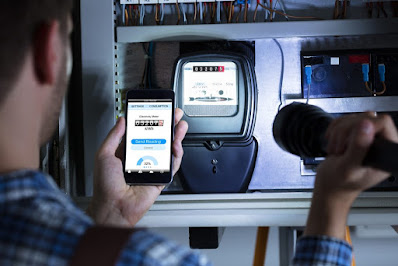Domestic Hot Water Safety Tips

Your hot water heater is one of the most frequently-used appliances in your home. It allows you to take hot showers, run your dishwasher, your washing machine, and gives you a steady supply of hot water for cooking. Most hot water heaters are hidden away behind closed doors, so it can be easy to forget they exist. However, the moment your hot water heater stops working – you’ll certainly notice!
Domestic hot water safety is very important, and this includes preventing sediment build up and leaks, and also ensuring your hot water heater’s temperature isn’t so hot that it scalds you or anyone in your home. Our team at Tri-Tech Energy shares their top tips for keeping your boiler in its best condition and other important safety information you need to be aware of.
Hot water heater maintenance and safety tips
- Remove any fire hazards near your
water heater. If you have
a gas-fired hot water tank, take extra caution that no flammable materials
or liquids are stored near it. Gas-fired hot water heaters have a pilot
light that is highly combustible, so keep the area around your boiler
clear. It can be tempting to use the space as storage for winter coats,
shoes, and other miscellaneous items, but even the smallest crack in your hot
water heater can result in a dangerous outcome.
- Check the water temperature
settings. We’ve all
run our hands under scalding water in the kitchen sink, or accidentally
set the shower water a little too hot. Your hot water heater has a
temperature control that allows you to set its maximum temperature. For
most of us, there’s no need to have scalding water flowing from your
boiler, and we recommend a maximum temperature of 120 degrees Fahrenheit.
Many people prefer to set it even lower than that, so there’s no chance of
accidental scalds or burns.
- Test the temperature/pressure relief valve regularly. This valve is what keeps your hot water heater from exploding if the temperature and pressure exceeds the safety limit. We recommend testing the valve once a year, because residential boilers sometimes malfunction due to leaks, cracks, or sediment build-up. Simply pull up on the handle and ensure the water flows freely, and that it stops when you release the handle. You’ll know the valve needs replacing if there is no water flow or if it drips out slowly after releasing the handle. Faulty valves are very dangerous, so it’s important to test them on a regular basis.
What is the safety device on a hot water heater?
The temperature/pressure relief valve is an important safety device. It works by relieving internal pressure if any components of the hot water heater fail, including if the temperature exceeds the safety range. As mentioned above, it’s important to test this valve regularly because it protects your boiler and prevents dangerous accidents in your home.
Professional Hot Water Heater Maintenance by Tri-Tech Energy in NJ
When’s the last time you had your hot water tanks checked by a professional? Given there are so many dangerous elements involved – the pilot flame, the pressure valve, and very high temperatures – it’s important to ensure your hot water heater is in top condition and free from any hazards.
Small cracks or leaks can result in potentially dangerous accidents that can be avoided. Not to mention, when your hot water heater isn’t properly maintained it can be a major inconvenience when your home suddenly has no hot water. We recommend investing in yearly maintenance by NJ professionals you trust.
For more information about domestic hot water safety, or if you have any questions, please contact our team at Tri-Tech Energy today.
Original content is posted on https://www.tritechenergy.com/domestic-hot-water/domestic-hot-water-safety-tips/

Comments
Post a Comment